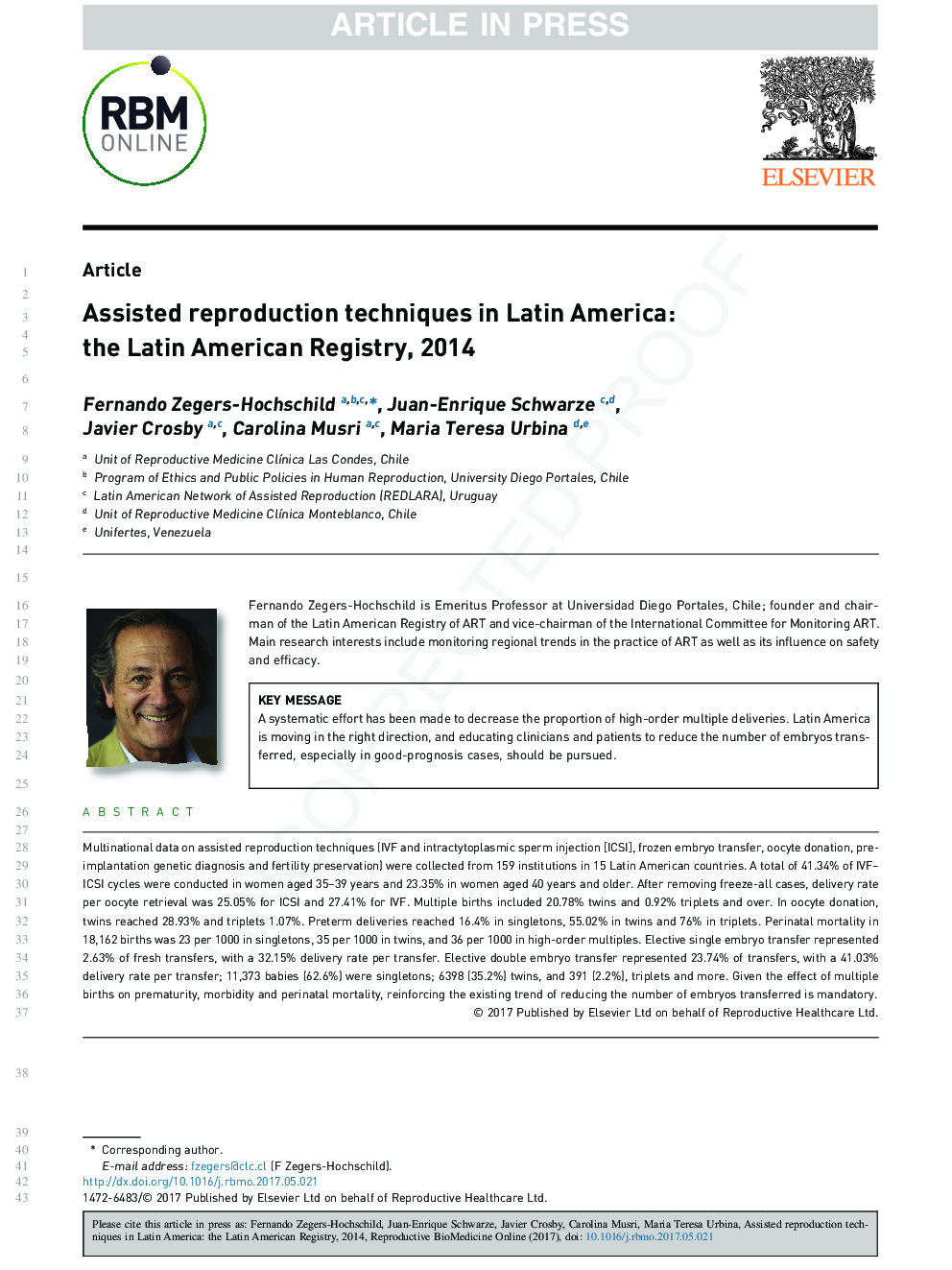| Article ID | Journal | Published Year | Pages | File Type |
|---|---|---|---|---|
| 5696623 | Reproductive BioMedicine Online | 2017 | 9 Pages |
Abstract
Multinational data on assisted reproduction techniques (IVF and intractytoplasmic sperm injection [ICSI], frozen embryo transfer, oocyte donation, preimplantation genetic diagnosis and fertility preservation) were collected from 159 institutions in 15 Latin American countries. A total of 41.34% of IVF-ICSI cycles were conducted in women aged 35-39 years and 23.35% in women aged 40 years and older. After removing freeze-all cases, delivery rate per oocyte retrieval was 25.05% for ICSI and 27.41% for IVF. Multiple births included 20.78% twins and 0.92% triplets and over. In oocyte donation, twins reached 28.93% and triplets 1.07%. Preterm deliveries reached 16.4% in singletons, 55.02% in twins and 76% in triplets. Perinatal mortality in 18,162 births was 23 per 1000 in singletons, 35 per 1000 in twins, and 36 per 1000 in high-order multiples. Elective single embryo transfer represented 2.63% of fresh transfers, with a 32.15% delivery rate per transfer. Elective double embryo transfer represented 23.74% of transfers, with a 41.03% delivery rate per transfer; 11,373 babies (62.6%) were singletons; 6398 (35.2%) twins, and 391 (2.2%), triplets and more. Given the effect of multiple births on prematurity, morbidity and perinatal mortality, reinforcing the existing trend of reducing the number of embryos transferred is mandatory.
Related Topics
Health Sciences
Medicine and Dentistry
Obstetrics, Gynecology and Women's Health
Authors
Fernando Zegers-Hochschild, Juan Enrique Schwarze, Javier Crosby, Carolina Musri, Maria Teresa Urbina, Latin American Network of Assisted Reproduction (REDLARA) Latin American Network of Assisted Reproduction (REDLARA),
